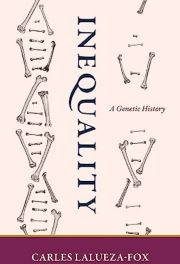Inequality: a Genetic History

Carles Lalueza-Fox
MIT Press, £22.50
Carles Lalueza-Fox’s Inequality: A Genetic History delves into the intricate link between genetics and inequality. The book examines how genetics have been used to uphold social disparities, from the early 20th-century eugenics movement to ongoing debates about race and intelligence.
The book is divided into chapters that explore various aspects of genetics and inequality, including the history of eugenics, genetics of intelligence and genetics of race. The author also highlights the ethical concerns and limitations surrounding the use of genetics to tackle social inequality.
A central theme is the enduring tale of inequality that has shaped our genetic makeup throughout history. The book unravels how societal structures have impacted genetics and how gender has played a significant role in historical social inequality. Lalueza-Fox also uncovers how genetics reveals past inequality, contributing to the diversity we see among humans today. The book discusses archaeological evidence indicating increasing inequality in burial practices over millennia; references a study that demonstrates persistent social stratification in present-day Sweden, despite its democratic ideals; and explores how ancestral shifts from migrations have impacted our genomes unevenly, reflecting societal biases and structures.
Comparing Inequality: A Genetic History with similar reads, Lalueza-Fox’s book uniquely weaves genetics into various inequality facets – social, economic, racial, gender and health – providing a more encompassing view.
Overall, it provides a well-researched, thought-provoking analysis of the intricate interplay between genetics and societal disparities. Although the book might prove challenging for readers unfamiliar with genetics, it is a valuable resource for those intrigued by the connection between genetics and social justice, showcasing how our past shapes the inequalities we face today.
Vijay Shankar Balakrishnan


